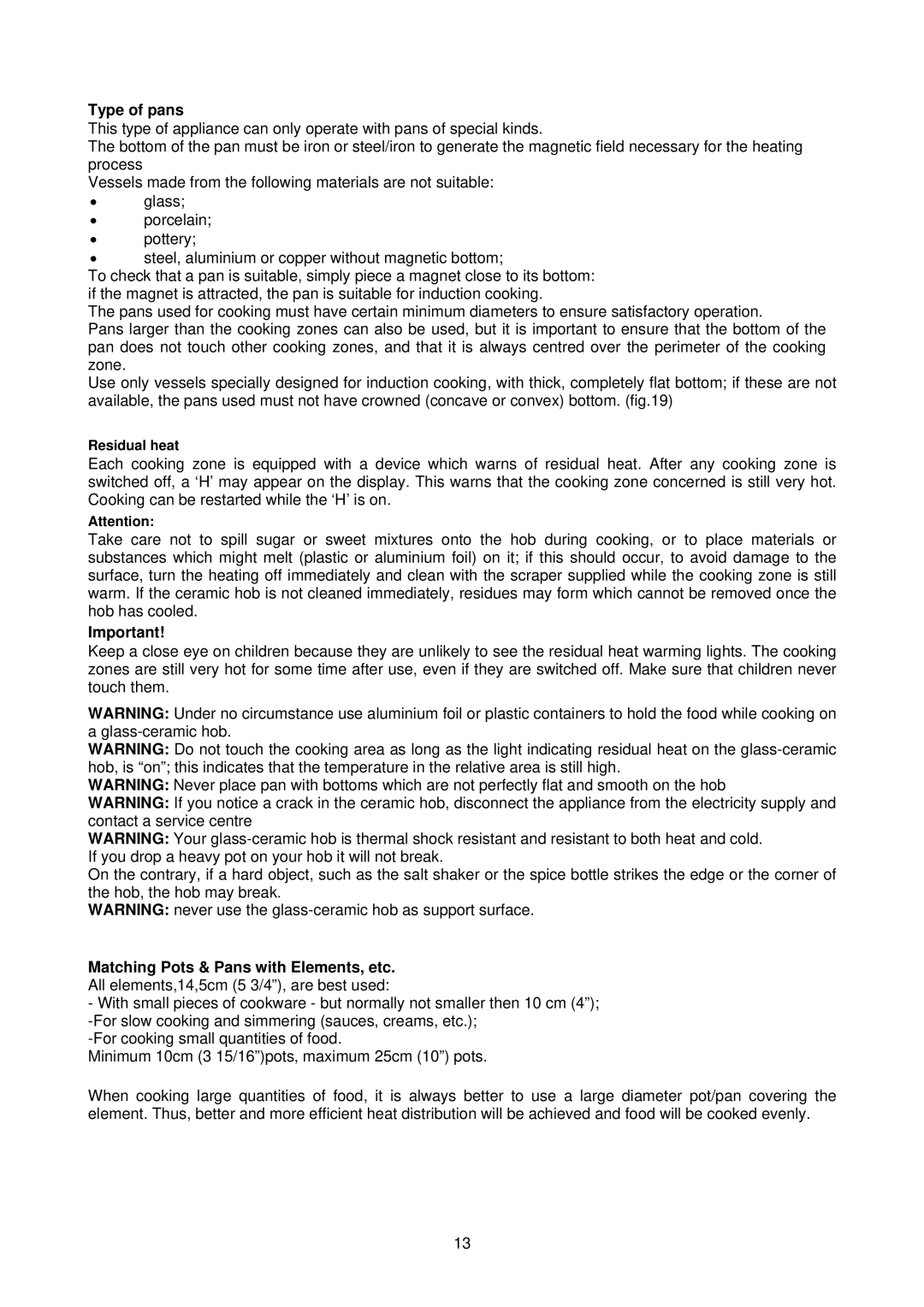Type of pans
This type of appliance can only operate with pans of special kinds.
The bottom of the pan must be iron or steel/iron to generate the magnetic field necessary for the heating process
Vessels made from the following materials are not suitable:
glass;
porcelain;
pottery;
steel, aluminium or copper without magnetic bottom;
To check that a pan is suitable, simply piece a magnet close to its bottom: if the magnet is attracted, the pan is suitable for induction cooking.
The pans used for cooking must have certain minimum diameters to ensure satisfactory operation.
Pans larger than the cooking zones can also be used, but it is important to ensure that the bottom of the pan does not touch other cooking zones, and that it is always centred over the perimeter of the cooking zone.
Use only vessels specially designed for induction cooking, with thick, completely flat bottom; if these are not available, the pans used must not have crowned (concave or convex) bottom. (fig.19)
Residual heat
Each cooking zone is equipped with a device which warns of residual heat. After any cooking zone is switched off, a ‘H’ may appear on the display. This warns that the cooking zone concerned is still very hot. Cooking can be restarted while the ‘H’ is on.
Attention:
Take care not to spill sugar or sweet mixtures onto the hob during cooking, or to place materials or substances which might melt (plastic or aluminium foil) on it; if this should occur, to avoid damage to the surface, turn the heating off immediately and clean with the scraper supplied while the cooking zone is still warm. If the ceramic hob is not cleaned immediately, residues may form which cannot be removed once the hob has cooled.
Important!
Keep a close eye on children because they are unlikely to see the residual heat warming lights. The cooking zones are still very hot for some time after use, even if they are switched off. Make sure that children never touch them.
WARNING: Under no circumstance use aluminium foil or plastic containers to hold the food while cooking on a
WARNING: Do not touch the cooking area as long as the light indicating residual heat on the
WARNING: Never place pan with bottoms which are not perfectly flat and smooth on the hob
WARNING: If you notice a crack in the ceramic hob, disconnect the appliance from the electricity supply and contact a service centre
WARNING: Your
On the contrary, if a hard object, such as the salt shaker or the spice bottle strikes the edge or the corner of the hob, the hob may break.
WARNING: never use the
Matching Pots & Pans with Elements, etc.
All elements,14,5cm (5 3/4”), are best used:
-With small pieces of cookware - but normally not smaller then 10 cm (4”);
Minimum 10cm (3 15/16”)pots, maximum 25cm (10”) pots.
When cooking large quantities of food, it is always better to use a large diameter pot/pan covering the element. Thus, better and more efficient heat distribution will be achieved and food will be cooked evenly.
13
